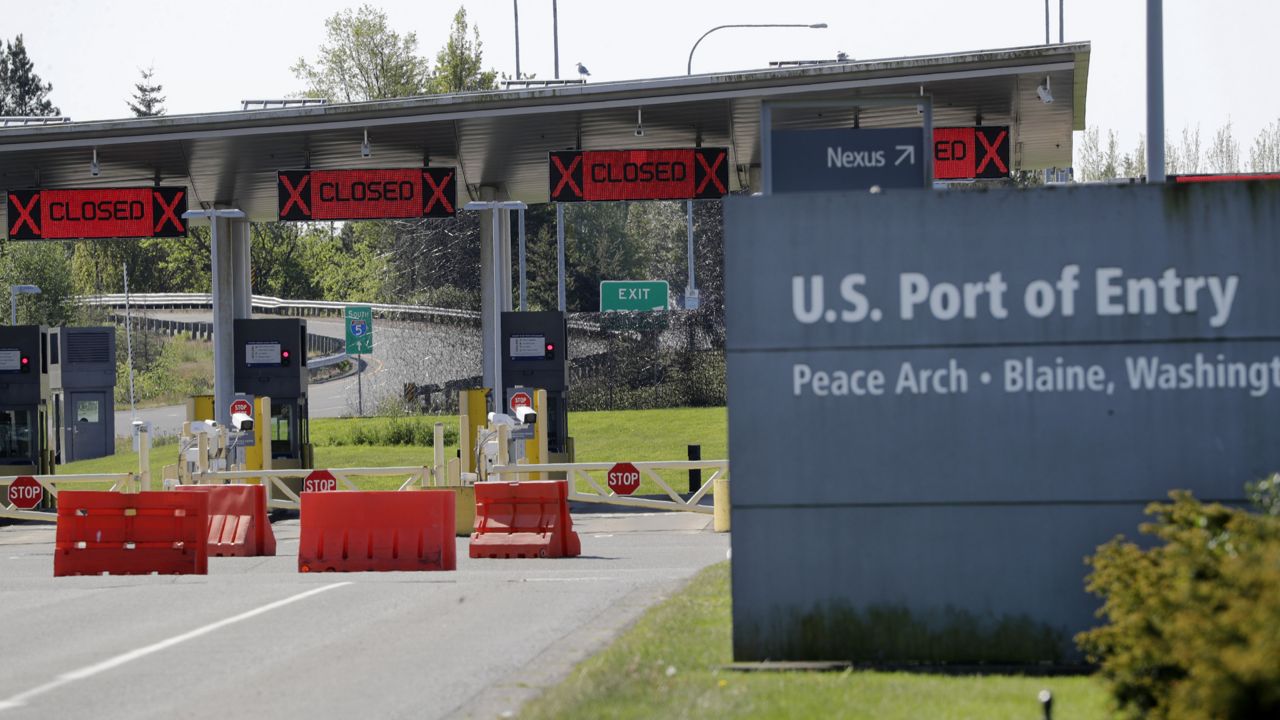WASHINGTON — Restrictions on travel across the United States’ borders with Canada and Mexico will remain in place for several more weeks, officials announced Monday.
Acting Department of Homeland Security Sec. Chad Wolf wrote on Twitter that the three countries are working together to mitigate the spread of COVID-19, and have decided to “extend the restrictions on non-essential travel through Nov 21.”
“We are working closely with Mexico & Canada to identify safe criteria to ease the restrictions in the future & support our border communities,” the message continued.
Bill Blair, Canada’s Minister of Public Safety and Emergency Preparedness, tweeted Monday that the government’s decisions on border restrictions “will continue to be based on the best public health advice available to keep Canadians safe.”
The move is a continuation of measures that were originally implemented on March 21, and which have been extended for 30 days in each month following. The agreement suspended all “non-essential” travel between the countries, including both tourism and recreational trips. Essential commerce and trade remain unaffected under the deal.
Additionally, the agreement maintains that the U.S. Customs and Border protection will no longer detain illegal immigrants in holding facilities, and will instead return the detainees to their country of entry — be it Mexico or Canada. When such a return is not possible, the CBP will “return these aliens to their country of origin,” per the DHS website.
For travelers hoping to enter Canada from the United States, they must meet three requirements, per the government’s website: Travelers must prove they are travelling for an essential purpose or are an immediate family member to someone in Canada; the traveler must not presenting signs or symptoms of COVID-19; and the traveler must have a plan to quarantine for 14 days, unless otherwise allowed.
On Monday, Canadian Prime Minister Justin Trudeau cited the skyrocketing cases of coronavirus across the United States as reason to keep border travel restricted for the foreseeable future.
“The situation in the United States continues to be of concern. So we're going to make sure we're keeping Canadians safe as best as we can," Trudeau told Global News, adding: "Canadians can be deeply reassured to know that their various orders of government are always going to work together to keep them safe, unlike some other places we see around the world.”
The United States leads the world with the highest rate of COVID infection at over 8 million cases nationwide, with a resulting death toll of over 220,000 people, per data provided by The New York Times.
In contrast, Canada has contained the virus with less than 10,000 deaths and around 203,000 cases across the country. Mexico has reported more than 825,000 confirmed cases of COVID-19 and nearly 85,000 deaths.



